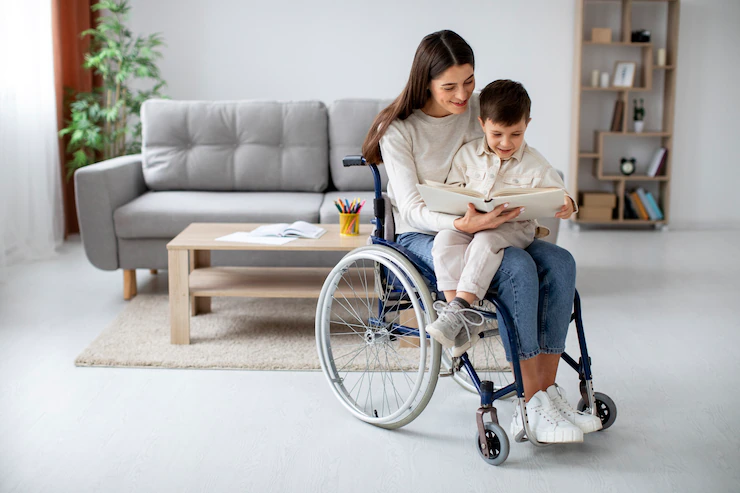Introduction
Motherhood is a transformative and joyful experience for women around the world, including those with disabilities. In South Africa, there is a growing recognition of the importance of inclusive maternity care that addresses the unique needs of mothers with disabilities. This article aims to shed light on the challenges faced by these women and the significance of providing comprehensive support and inclusive healthcare services to ensure a positive and empowering maternity experience.
- Understanding the Challenges
Mothers with disabilities encounter a range of physical, sensory, and attitudinal barriers throughout their pregnancy journey. These challenges include:
a) Accessibility: Physical barriers such as inaccessible buildings, lack of appropriate transportation, and limited availability of assistive devices can make it difficult for pregnant women with disabilities to access healthcare facilities and prenatal care services.
b) Communication and Information: Limited availability of accessible information and communication tools can impede effective communication between healthcare providers and mothers with disabilities. This can lead to misunderstandings, lack of informed decision-making, and compromised quality of care.
c) Stigma and Discrimination: Mothers with disabilities often face societal stigma and discrimination, which can lead to feelings of isolation, exclusion, and a lack of support. This negative social environment can significantly impact their emotional well-being and overall pregnancy experience.
- Inclusive Maternity Care
To support mothers with disabilities and ensure inclusive maternity care, the following steps should be taken:
a) Accessibility: Healthcare facilities need to be designed and equipped to accommodate the needs of women with disabilities. This includes wheelchair accessibility, ramps, accessible restrooms, and properly trained staff who can assist women with mobility challenges.
b) Communication and Information: Healthcare providers should receive training in effective communication with women who have various disabilities. Providing information in accessible formats, such as braille, large print, or audio recordings, can help ensure that women understand their pregnancy and can actively participate in decision-making.
c) Emotional Support: It is crucial to provide emotional support to mothers with disabilities by addressing their unique concerns and connecting them with support networks. Peer support groups, counseling services, and platforms for sharing experiences can empower women and reduce feelings of isolation.
d) Individualized Care Plans: Healthcare providers should develop individualized care plans that consider the specific needs and capabilities of each mother with a disability. This may involve collaborating with specialists, occupational therapists, and social workers to ensure comprehensive and holistic care.
e) Training and Sensitization: Healthcare professionals should receive training on disability rights, inclusivity, and person-centered care. Sensitization programs can help dismantle biases, increase understanding, and promote respectful and dignified treatment of women with disabilities.
- Collaboration and Advocacy
To create lasting change, collaboration among healthcare providers, disability organizations, policymakers, and women with disabilities themselves is crucial. Advocacy efforts should focus on:
a) Policy Reform: Advocating for policies that protect the rights and dignity of women with disabilities during pregnancy and childbirth is essential. This includes ensuring equal access to healthcare services, anti-discrimination legislation, and guidelines for inclusive maternity care.
b) Disability-Inclusive Research: Encouraging research that specifically addresses the experiences and needs of mothers with disabilities can drive evidence-based practice and inform policy development.
c) Awareness and Education: Increasing public awareness about the rights, capabilities, and needs of mothers with disabilities can contribute to a more inclusive and supportive society.
Conclusion
Supporting mothers with disabilities in South Africa requires a comprehensive and inclusive approach to maternity care. By addressing physical accessibility, improving communication, providing emotional support, and advocating for policy changes, we can create an environment where all mothers, regardless of their disabilities, can have a positive and empowering pregnancy experience. Inclusive maternity care not only benefits individual mothers but also contributes to a more equitable and inclusive society as a whole.










